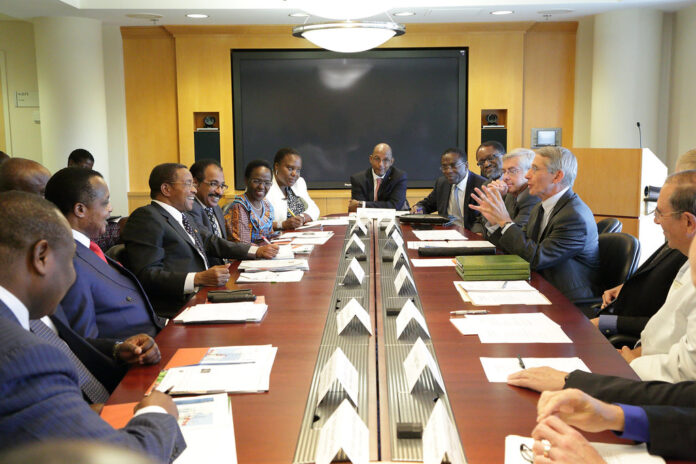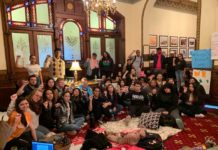![]()
The US-Africa Leaders Summit commenced on December 13 as a forum for discussing issues of civil society, the African diaspora, trade and investment, space cooperation, peace and security, sustainable health, and climate change. The summit was the first in eight years since former President Barack Obama hosted African leaders in Washington D.C. This year, nearly 49 African heads of state were in attendance.
In his address to the African delegations, President Biden made a promise to invest $55 billion on Africa over the next three years, stating that “the United States is all in on Africa’s future.”
The $55 billion investment is “just the beginning,” according to Biden. He then announced an additional $15 billion in private trade and investment with African nations.
On Wednesday, December 14, Biden met with heads of state from Nigeria, Democratic Republic of Congo, Liberia, Sierra Leone, Madagascar, and Gabon, all of which will hold national elections in the upcoming new year. Biden emphasized the importance of good governance and democratic processes; along these lines, according to the White House, the US government will provide an additional $165 million to “deepen democracy in Africa” in the coming years. This statement comes from increasing concerns regarding the “significant election-related irregularities” and usurpation of power via military juntas in several West African countries, including Equatorial Guinea, Mali and Burkina Faso.
In line with the promises made in Secretary of State Anthony Blinken’s US Strategy Toward Sub-Saharan Africa, published in August 2022, Washington is committed to fostering a more equal partnership with African countries, advocating for a permanent African Union seat in the Group of 20 (G20). Currently, South Africa is the only African nation in the G20.
The three-day summit concluded on December 15, with further discussions on good governance, human rights, peace and security, inclusive growth, sustainable development and the promotion of food security and food systems resilience.












